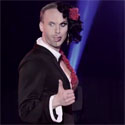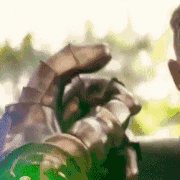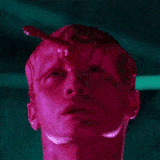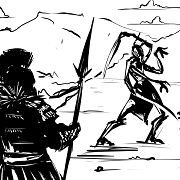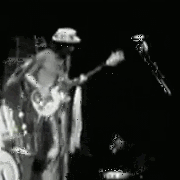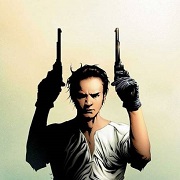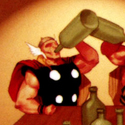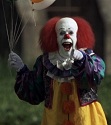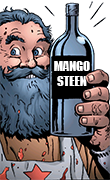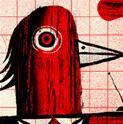|
In the back of the book, there is a Notes section in which he discusses a few of the stories (not The Wedding Gig though). He has a short paragraph regarding Tygers but it's pretty much exactly what syscall girl said. Do read the Notes though, because he goes into more depth with several other stories and it's neat to read his take on them. I've always looked at The Wedding Gig as a true crime/period piece. I can see how it wouldn't hold up well compared to some of the other works in that collection.
|
|
|
|

|
| # ? May 15, 2024 18:41 |
|
Zombie Samurai posted:I've never read any King before, so I decided on a whim to start with Skeleton Crew. I'm maybe halfway through the whole collection so far, and am enjoying it quite a bit. However, Here There Be Tygers and The Wedding Gig are kinda baffling to me. Is there a point to them that I missed? Tygers just makes no sense, and Gig seems too...straightforward, I guess? King really, really likes playing up how powerful the imaginations of children can be. In Danse Macabre there was a throw-away line - something about, "if several thousand Romanian peasants can imagine a vampire to be real, it would only take one -- probably a child -- to imagine the stake to kill it." I always took "Tygers" to be his take on what if a kid could manifest something out of his imagination to deal with a bully teacher. I mean, what kid hasn't wanted a mean teacher to get eaten by a tiger?
|
|
|
|
Has anyone ever actually stopped reading the last book of the Dark Tower series at the point where King says "Ok, guys, you should stop reading here"? If someone had, and then reviewed the series, I wonder how different their experience would be? Because I have often wondered if I would have liked the series more or less if I had, even if I'd gone back and re-read it later with the whole ending. But it's kind of like any movie with a twist ending - you can only watch it unaware once.
|
|
|
|
I have a friend that has read the first few years ago and intends to go back one day and start over. If that ever happens I'll request her to do that, even if its just to fire off a quick email with her thoughts. I fell for that line so hard. I KNEW what he was doing and the point he was making but I was helpless. Ugh.
|
|
|
|
I remember reading that part and King says something like "but some people cant be happy with the journey, you have to have an ending or you say its not worth it" and thinking thats a bullshit thing to say. Like, was he angry at people for waiting 30 years and spending money buying his books and wanting some resolution? I'm sure if Harry Potter had cut off at the battle of Hogwarts or Hansel and Gretel had ended with the kids locked in the cage King wouldn't have gone around saying how satisfied he was with the story.
|
|
|
|
oldpainless posted:I remember reading that part and King says something like "but some people cant be happy with the journey, you have to have an ending or you say its not worth it" and thinking thats a bullshit thing to say. Like, was he angry at people for waiting 30 years and spending money buying his books and wanting some resolution? I'm sure if Harry Potter had cut off at the battle of Hogwarts or Hansel and Gretel had ended with the kids locked in the cage King wouldn't have gone around saying how satisfied he was with the story. It's defensible with the Dark Tower series because that's a constant theme throughout the books. The Dark Tower is framed as the ultimate McGuffin. There is no real power to it except as an object of desire. As soon as you remove the desire you remove its power. King's reference to "the act vs the squirt that comes at the end" actually puts the ending in conversation with Renaissance love poems, which frame the culmination of the act, the orgasm, as a kind of death, or le petit mort in psychoanalysis (just as the DT itself is a huge phallus -- not as in just some vulgar "oh it's a giant tower it must be a dick," but as in the transcendent master signifier that literally gives all other objects their meaning, holds the universe together). Anyways, but back to the death and desire. Desire and lack and "not getting to the Dark Tower," i.e. "the journey" is life preserving. You hold off death as long as you don't get what you want. Just like sex. You don't rush just to the end. You put it off as long as you can to make it better. Because while desire is life preserving, actually getting the object is life ending. As soon as you get to the squirt, you're just... done. The only way for getting to the top of the tower to be a kind of renewal -- as Roland and co. hopes it will be -- is, well... for it to start the journey afresh.
|
|
|
|
DirtyRobot posted:It's defensible with the Dark Tower series because that's a constant theme throughout the books. To add to that, when you look at the actual events of the series, Roland reaching the Tower didn't really do anything for Gan or the beams. Its the journey that he takes to get there that leads him to all of these opportunities to help save the beams and thwart the Crimson King. It becomes clear as the series goes on that Roland doesn't have any lofty expectations for what will happen when he reaches the Tower. He just wants to basically give one final tribute to everyone he's lost; in a way I get the feeling he wants to tell Gan/The Dark Tower to gently caress off for everything its put him through, and announcing the names of his friends one by one is his way of doing that.
|
|
|
|
I don't mind the very ending of the Dark Tower. What put a sour taste in my mouth was the way other elements of the story were wrapped up. The Crimson King battle was outright disappointing and sounded like the description of an N64 boss battle rather than the epic conclusion to a long anticipated battle. Randall Flag's character was pointlessly sacrificed to build up another villain, Mordred, who wasn't very memorable and who also died under rather mundane circumstances. To me a metastory about the importance of stories should contain the classic elements of a good story. Creating intentionally disappointing or anticlimactic ends to the arcs of major character's might be a defensible literary decision, but the Dark Tower was never going to be great literature and I resented King's belated attempts to build the series into something more than it was. More generally, I felt like the last few books were way too narrow in focus. I would have liked to see more traveling accross post apocaltypic midworld and less time spent dithering in a single town / New York City (why did we spent almost an entire book in NYC? That was really lame). Also: self insertion. The less said about that the better.
|
|
|
|
Helsing posted:I don't mind the very ending of the Dark Tower. What put a sour taste in my mouth was the way other elements of the story were wrapped up. The Crimson King battle was outright disappointing and sounded like the description of an N64 boss battle rather than the epic conclusion to a long anticipated battle. Randall Flag's character was pointlessly sacrificed to build up another villain, Mordred, who wasn't very memorable and who also died under rather mundane circumstances. To me a metastory about the importance of stories should contain the classic elements of a good story. Creating intentionally disappointing or anticlimactic ends to the arcs of major character's might be a defensible literary decision, but the Dark Tower was never going to be great literature and I resented King's belated attempts to build the series into something more than it was. Well, we were talking mostly about the very, very end, so I personally agree with your first paragraph, and I don't think those failures are attributable to "literary decisions" so much as King tried to do a thing (make an exciting, climactic battle scene) but didn't really succeed in doing that thing. Regarding the final battle, the Crimson King is "trapped" at the DT because blah blah it's a story about stories, and the CK is the villain, and the villain is always the last thing right before you attain the McGuffin, so the CK has to be right at the foot of the Tower/McGuffin, whether the CK likes it or not. He's "trapped." So it makes sense that that's where the CK is. But that doesn't excuse the battle itself. You could make arguments about how the CK "has" to be old and mad (because of the nature of villains and narrative, or the moving on of the universe or something... maybe), and how that ties in to how the battle plays out, but you could still have the CK as "old and mad" yet have a more exciting, climactic battle. You can even tell the battle was supposed to be climactic. Roland, despite being one-handed, shoots all the sneetches because he's a gunslinger; he's the only one that could really get past this particular obstacle. It was supposed to be the perfect harmony between difficulty and skillset, when the hero achieves self-actualization and realizes his ultimate self, in this case a gunslinger doing really gunslingery things. But really who cares? It came off as target practice. The rose / Patrick thing sort of makes sense in terms of King's earlier point about how every opportunity out for the hero is actually just a really well-hidden deus ex machina. But even if we buy that (and personally I just plain disagree with that premise), King didn't follow the logic of his own argument when he made the deus ex machina's status as deus ex machine obvious and explicit rather than, y'know, well-hidden. I don't really understand Mordred vs. Flagg. Though to be honest I think it's just hazy and undeveloped. Something something generational conflict and the long term effects of one's actions or earlier life decisions (both Roland's and Flagg's, I guess). The only thing that gets me about the author insert is that King says he doesn't like the term "metafiction" because it's pretentiously academic. Okay, well, even disregarding whether or not an author self-insert might itself be just a wee bit pretentious (I think it can be excusable), what other word describes what you're doing, when you've produced fiction in which the author appears inside his own fiction and proceeds to explicitly talk about the nature of the fiction? How is metafiction not a perfectly apt word for that? You can claim that every story is a story about stories, so calling any of them "metafiction" has no meaning, but not every story has the author in the actual story. I mean come on.
|
|
|
|
When Roland did the bullet hypnotism trick on King in the book and book King started speaking the hair stood up on my arms. I thought it was exceptionally done, wasn't too dragged out, and changed my opinion of the author self-insert from skeptical to satisfied. That's just me, though. I was, however, super annoyed with the CK battle mostly due to the "EEEEEEEEEEEEEEeeeeeeeeeeeeeeeeee" poo poo. Overall, I enjoyed the DT series (I actually enjoyed the tragic Wizard and Glass as much as the first three) but, out of all King's works, it's some of the few books of his I'll probably never re-read. Mostly because of Song of Suzanna, though.
|
|
|
|
I always drew a connection between the Crimson King and the French waiter from "Lunch at the Gotham Cafe" because of that EEEEEEEEeeeeeeee.
|
|
|
|
oldpainless posted:I always drew a connection between the Crimson King and the French waiter from "Lunch at the Gotham Cafe" because of that EEEEEEEEeeeeeeee. Same here. First he was a Satanesque figure, then a catfish, then Jafar from Disney's Aladdin and, finally, an insane maitre d'. To rehash a discussion from a page ago, the most disturbing thing I've read by King was in his short story "Mrs. Todd's Shortcut." The entire story can basically be summed up as being about how a woman obsessed with shortcuts finds exactly what she's looking for as narrated by a country yokel. The weird part is in how one of the characters privately admits to himself that the world has unnatural things going on that can't be explained naturally, all in response to the narrator describing how reality is like the skin of an old leather basketball: sometimes it wears thin in places. What does he remember that convinces him that the implausible tale of Mrs. Todd might not be so far-fetched? He heavily implies that he had sex with a rock that was menstruating after he clove it in half while plowing a field as he was going through puberty. That was so shocking and out of left field that it left me stunned for at least a day.
|
|
|
|
I only recently read Full Dark, No Stars, but some of the stories in there were the most disturbing of his I'd read in years. Maybe because they were less about monsters and more about deranged lunatics (to some extent). I would say I've read 3/4 of King's stuff but thanks to this thread I realized I don't own Night Shift. I may have read it when I was like 13 but I don't remember reading it at all so I just bought it. Thanks, thread.
|
|
|
|
Y posted:Something bugged me about The Wind Through The Keyhole - at what point did Maerlyn become a good guy? He is set opposite the forces of the Crimson King in the story, and appears to be helpful enough towards Tim, which seems pretty nice for a guy who created 13 demonic scrying orbs. Is his backstory as the creator of the Wizard's Rainbow just some bullshit Walter liked to peddle? Or do we chalk up his shifting allegiances as "Mid-World is real weird" and leave it at that? This was a couple of pages back, but if this helps: Maerlyn, like Authur Eld, may have two sides to the legendary figure; note the Dixie Pig has a mural of a cannibal feast starring the Eld. Whether this was profane mockery or not is subject to debate (and if i recall correctly, both the Red and the White have ties to the Eld). Remember this is Roland's story (within a story!) so his version of Maerlyn, as a benevolent wizard, may be justified. Also, the Bends o' the Rainbow are tools of a forgotten age, ala palantir (and dogans, too, for that matter). Whatever their original purpose, the historical Maerlyn (if he existed) knew exactly how to use them. Remember Blaine the loving Mono was goddamn public transit before the world moved on, so the Bends may have had a much more benevolent purpose originally. I could be going out on a limb here, but the Old Ones were kind of hosed in the head. In shorter words, Maerlyn was not Walter, (although people thought Walter was the Wizard come again, and he never corrected them. ("I was never that one") Perhaps like Maurten the Turtle, Maerlyn exists but takes no stand in matters like these. God I love Dark Tower lore. Anyway, my SO and I watched the first couple episodes of the new Under the Dome series. Diggin' it. Approve of the changes so far.
|
|
|
|
The Berzerker posted:I only recently read Full Dark, No Stars, but some of the stories in there were the most disturbing of his I'd read in years. Maybe because they were less about monsters and more about deranged lunatics (to some extent). I just (four hours ago) finished 1922 from Full Dark, No Stars, and even though i gave it a big, eyerolling scoff, it gave me a nightmare so bad I'm up, all lights on, at 4:30 AM. So yeah, even King in his latter days not-so-inspired state is pretty doggone good...
|
|
|
|
oldpainless posted:Like, was he angry at people for waiting 30 years and spending money buying his books and wanting some resolution? The Dark Tower has a really weird history compared to other King books. When he started it, he didn't actually think large numbers of people would enjoy it. It was serialized in his friend's fanzine, and eventually got collected into a small-press hardcover with a run of maybe 5000 copies for subscribers who wanted it. As his other books became more popular, people started seeking out this rare hardcover and paying lots of money for it. Eventually his publisher realized the demand and put out a paperback. The series was suddenly very popular. But it wasn't begun in the same sense as most of his other projects. I could easily see how an author might get frustrated with the demands and expectations of readers over a long-run series that was probably never intended to be finished in the first place. George R.R. Martin said something interesting recently on the Nerdist podcast - he pointed out that fans never got angry with him before he started writing a series. He could quit writing and work on TV for a years and nobody complained. But writing a series is different - people get invested in the characters, want to know what happens next, suddenly fans start complaining that you write too slow, or get mad at you for working on other projects. I haven't read The Dark Tower because I have a hard time remembering made-up place names and get lost easily in books like that, but given the history of the project I can see how he might want to tie whole thing up with a grand meta narrative about reader expectations. Edit: Having enjoyed Under The Dome and 11/22/63, I am on a King kick and started Salem's Lot. Sadly I already knew it was about VAMPIRES so that kind of ruined the first half of the book for me. As a kid I read IT, Pet Semetary, and The Dark Half. I have seen most of the big King movies like The Mist, The Green Mile, and The Shining. What should I read next? I want to be completely surprised but don't want to read a crappy book. I was thinking The Regulators and its companion book? One of his two Hard Case Crime books? Bag of Bones? What would be a surprising and disturbing/enjoyable book to read? bad day fucked around with this message at 05:57 on Aug 5, 2013 |
|
|
|
If you've never read the Stand, read that. The Bachman Books are awesome too.
|
|
|
|
savinhill posted:If you've never read the Stand, read that. The Bachman Books are awesome too. The Long Walk. The answer is always The Long Walk. Suggesting Misery and The Dead Zone, too.
|
|
|
|
DirtyRobot posted:Well, we were talking mostly about the very, very end, so I personally agree with your first paragraph, and I don't think those failures are attributable to "literary decisions" so much as King tried to do a thing (make an exciting, climactic battle scene) but didn't really succeed in doing that thing. You're probably right that the scenes with the Crimson King failed for relatively conventional reasons. However don't you get the sense that King's car accident and his brush with mortality cast a long shadow over the last three books and the way various plot elements are resolved? With Flag's death in particular it felt like King was driving home some kind of point about how inglorious and brutally unfair dying really is. Of course I wouldn't have minded this half so much if Mordred had, in turn, been a more interesting character. quote:Regarding the final battle, the Crimson King is "trapped" at the DT because blah blah it's a story about stories, and the CK is the villain, and the villain is always the last thing right before you attain the McGuffin, so the CK has to be right at the foot of the Tower/McGuffin, whether the CK likes it or not. He's "trapped." So it makes sense that that's where the CK is. But that doesn't excuse the battle itself. I guess my issue here, and the reason that I label these things 'literary' decisions, is that the underlying logic here all flows from the symbolism of the story. I felt like I started reading the Dark Tower books because I thought it was superficially cool to have an amoral cowboy wandering through a post apocalyptic wasteland popping mescaline and banging demons. I didn't particularly want the story to transition into a metaphorical exploration of how genre fiction works or how the constitutive elements of a story are assembled. If the Crimson King 'has' to be in the tower then I want there to be established reasons within the logic of the story for this to be the case. This really just brings to mind one of my favourite passages from IT: IT, Stephen King, Signet Books, Scarborough ONT: 1987, pp.119-120 posted:Here is a poor boy from the state of Maine who goes to the University on a scholarship. All his life he has wanted to be a writer, but when he enrolls in the writing courses he finds himself lost without a compass in a strange and frightening land. There's one guy who wants to be Updike. There's another who wants to be a New England version of Faulkner--only he wants to write novels about the grim lives of the poor in blank verse. There's a girl who admires Joyce Carol Oates but feels that because Oates was nurtured in a sexist society she is "radioactive in a literary sense." Oates is unable to be clean, this girl says. She will be cleaner. There's the short fat grad student who can't or won't speak above a mutter. This guy has written a play in which there are nine characters. Each of them says only a single word. Little by little the playgoers realize that when you put the single words together you come out with"War is the tool of the sexist death merchants." This fellow's play receives an A from the man who teaches Eh-141 (Creative Writing Honors Seminar). This instructor has published four books of poetry and his master's thesis, all with the University Press. He smokes pot and wears a peace medallion. The fat mutterer's play is produced by a guerrilla theater group during the strike to end the war which shuts down the campus in May of 1970. The instructor plays one of the characters. Now admittedly King was skewering the tendency to hamfistedly shove a socially conscious moral into your writing, and that isn't precisely what he's done with the Dark Tower. However I feel like the underlying phenomena here is similar: the Dark Tower toward the end starts to feel less to me like a story enfolding on its own terms and more like some kind of literary exercise. quote:The only thing that gets me about the author insert is that King says he doesn't like the term "metafiction" because it's pretentiously academic. Okay, well, even disregarding whether or not an author self-insert might itself be just a wee bit pretentious (I think it can be excusable), what other word describes what you're doing, when you've produced fiction in which the author appears inside his own fiction and proceeds to explicitly talk about the nature of the fiction? How is metafiction not a perfectly apt word for that? You can claim that every story is a story about stories, so calling any of them "metafiction" has no meaning, but not every story has the author in the actual story. I mean come on. I think that King is sorta drawn in two conflicting directions by the overall arc of his career. On the one hand its still important to him to think of himself as somebody from a workingclass Maine background, a no-nonsense kind of guy who doesn't bullshit and who celebrates writing as a basically working class occupation that doesn't get too high-fallutin. At the same time King is exceptionally well read, has been a teacher for many years and has written multiple books on literary theory. He's both a significant contributor to and commentator on pop culture. He's also someone who, as he's gotten older, has probably enjoyed gaining a bit more prestige and respectability with a 'serious' audience. That seems to put him in places where on the one hand he wants to do stuff like metafiction where he inserts himself as an author and then starts commenting on the construction of his own story, but at the same time he doesn't want to seem like he's turning into the sort of author he used to mock. For my part, I guess that personally I was really just looking for some escapist genre fiction in the tradition of Robert E. Howard or Dashiell Hammet or H. P. Lovecraft or Michael Moorecock or Elmore Leonard or Richard Matheson. I've always regarded King at his best as being comparable to these guys, and that's really the kind of story I'm looking for when I start reading something like 'The Gunslinger' and its sequels. While I did enjoy a lot of parts of the later books, I feel like on the whole the series transitioned away from just trying to be a great story and increasingly started to feel like some kind of commentary upon the nature of storytelling or whatever.
|
|
|
|
King should rewrite everything after 3 and let the reader decide which version they want in their collection. There's got to be some way to branch that, after all aren't there all these doors to different worlds?
|
|
|
|
I think King actually did muse about rewriting the rest of the series the same way that he rewrote the Gunslinger. He has even openly mused about removing the self insertion plotline. Seems weird because from what I remember that would entail substantially reworking the book. There'd be hundreds of pages that would presumably be completely differently, though I suppose the impact on the overall sequence of events would actually be relatively minor.
|
|
|
|
Helsing posted:I think King actually did muse about rewriting the rest of the series the same way that he rewrote the Gunslinger. He has even openly mused about removing the self insertion plotline. I don't claim to be an expert on such things but it seems like a guaranteed money maker when you factor in all the people unhappy with the later books and all the people who would buy them just to see what's been changed. I'm sure some people would even buy it just thinking they would raise in value at some point. I know I'd check out new versions.
|
|
|
|
I would buy Dark Tower rewrites without hesitation. Almost everything King wrote in the first few years after the accident is kind of bad, but he's come back around and I'd like to see what he can do with the series now that he isn't scared he's going to die tomorrow.
|
|
|
|
|
Ornamented Death posted:I would buy Dark Tower rewrites without hesitation. Almost everything King wrote in the first few years after the accident is kind of bad, but he's come back around and I'd like to see what he can do with the series now that he isn't scared he's going to die tomorrow. He seems far more self-aware now and has done a good job of not getting lazy like he used to about 2/3s of the way through. I know I'd buy rewrites so hard Amazon would walk funny the next day but I wouldn't feel good about it. I'd feel dirty, dirty shame. Jealous Cow fucked around with this message at 23:30 on Aug 5, 2013 |
|
|
|
Ornamented Death posted:I would buy Dark Tower rewrites without hesitation. Almost everything King wrote in the first few years after the accident is kind of bad, but he's come back around and I'd like to see what he can do with the series now that he isn't scared he's going to die tomorrow. Oh yeah, while I still enjoyed the later Dark Tower books, there's no doubt that King has been on his game a lot better in the past five years or so than he was in the years after his accident. It would definitely do what he considers his career defining series(I'm assuming anyway) more justice.
|
|
|
|
RC and Moon Pie posted:The Long Walk. The answer is always The Long Walk. These are pretty much Peak King. His best characters by far, and The Long Walk and Misery both evoke this wonderful feeling of being completely, utterly, trapped. The Dead Zone has more of a feeling of loss to it that also works really well. Doesn't hurt they're all rather short (for King, at least) and have zero bloat. I can't really think of anything I'd cut from those books.
|
|
|
|
Count me in as someone who would probably give Dark Tower re-writes a shot. His whole thing about the journey vs the end doesn't hold water with me when the guy basically acknowledges that he rushed to the end himself.
|
|
|
|
After all the 'salem's Lot talk last week I found for $6, an almost new edition of the illustrated edition of 'salem's Lot at Goodwill. Despite the fact I own 3 other copies (I still have my mother's original edition paperback that I read back around 1985) I had to have it. This version really doesn't have that many pictures or illustrations in it. It does include the related short stories out of Night Shift, an introduction by King, and 50 pages of deleted material. If you are a fan of the book it is worth seeking it out. Still to this day this page gives me chills...  2 of my favorite books right here on one page. nate fisher fucked around with this message at 13:55 on Aug 7, 2013 |
|
|
|
Helsing posted:Holy poo poo points about King's shift in writing
|
|
|
|
Hey goons, just wanted to ask opinions on 11.22.63 - worth reading or not? I started it a few months back and got a few chapters in, but I had some stuff going on in my life that rendered me unable to concentrate on reading. I'm able to read more now but gargantuan books are a bit too much for me at the moment.
|
|
|
|
WattsvilleBlues posted:Hey goons, just wanted to ask opinions on 11.22.63 - worth reading or not? I thought it was a good book, just don't go into it expecting it to actually be about a guy trying to stop the Kennedy assassination since that takes up such a miniscule amount of the plot.
|
|
|
|
WattsvilleBlues posted:Hey goons, just wanted to ask opinions on 11.22.63 - worth reading or not? Best new King novel I have read since the 90's.
|
|
|
|
WattsvilleBlues posted:Hey goons, just wanted to ask opinions on 11.22.63 - worth reading or not? Yeah, go for it. 11.22.63 is actually what got me on this now year and a half on and off King kick. I'd put it in my top five King novels, actually. And don't be afraid of the length. Even though the book's over 800 pages, the font of the hardcover version probably could have been compressed to make it about 600. Regardless, it reads really quickly, although some people think the middle section meanders a bit. I'm noticing the same thing with Under the Dome, which is quickly becoming crack on paper for me. I can't put it down (had the same issue with 11.22.63).
|
|
|
|
WattsvilleBlues posted:Hey goons, just wanted to ask opinions on 11.22.63 - worth reading or not? Yeah. It actually has a good ending for a change too.
|
|
|
|
This is quite encouraging. I'm a bit surprised to see the JFK stuff isn't the bulk of the book though. Any recommendations for King's horror stories, whether novels or short stories? I know his older stuff is considered the best really. I've read It, Misery and The Shining and enjoyed them all.
|
|
|
|
WattsvilleBlues posted:This is quite encouraging. I'm a bit surprised to see the JFK stuff isn't the bulk of the book though. 'salem's Lot and Pet Sematary if you are looking for horror (and haven't read them).
|
|
|
|
Night Shift is probably his best book of short stories.
|
|
|
|
muscles like this? posted:Night Shift is probably his best book of short stories. Yeah. Jerusalem's Lot, Night Surf, Quitters, Inc., Children of the Corn, The Last Rung on the Ladder. Primo stuff.
|
|
|
|
Helsing posted:You're probably right that the scenes with the Crimson King failed for relatively conventional reasons. However don't you get the sense that King's car accident and his brush with mortality cast a long shadow over the last three books and the way various plot elements are resolved? With Flag's death in particular it felt like King was driving home some kind of point about how inglorious and brutally unfair dying really is. Of course I wouldn't have minded this half so much if Mordred had, in turn, been a more interesting character. My stance at the time was, post accident, there was a lot of talk on king's part about giving up writing. It seemed like he was to stop, or at least the compulsion was gone and so his output would slow dramatically. The only problem was that he had this hanging over his head. So, his first order of business was to take care of The Dark Tower and get it out the way, hence the three very narrow in scope books that dropped in rapid succession. Wolves and Song were quite the sprint to the finish. I think with the last, he felt really, really compelled to write about what he had gone through and it sorta made a mess of things towards the end there. Had the accident not happened, I'd imagine it still wouldn't be done, and the books he turned out would be very different
|
|
|
|

|
| # ? May 15, 2024 18:41 |
|
Helsing posted:You're probably right that the scenes with the Crimson King failed for relatively conventional reasons. However don't you get the sense that King's car accident and his brush with mortality cast a long shadow over the last three books and the way various plot elements are resolved? With Flag's death in particular it felt like King was driving home some kind of point about how inglorious and brutally unfair dying really is. Of course I wouldn't have minded this half so much if Mordred had, in turn, been a more interesting character. That, plus, again, the effects of one's actions. Partly Roland's early actions and his willingness to do whatever to get to the tower (letting go of Jake, banging the oracle, being willing to let Susannah bang the demon), and partly Flagg's actions, though with Flagg it's less specific actions, and more a case of him being the type of scummy guy leading the type of scummy life that at some point is almost necessarily going to see him having to hang out with something or someone as dangerous as Mordred. And it's not going to end well. Helsing posted:I guess my issue here, and the reason that I label these things 'literary' decisions, is that the underlying logic here all flows from the symbolism of the story. I felt like I started reading the Dark Tower books because I thought it was superficially cool to have an amoral cowboy wandering through a post apocalyptic wasteland popping mescaline and banging demons. I didn't particularly want the story to transition into a metaphorical exploration of how genre fiction works or how the constitutive elements of a story are assembled. In the DT series, for whatever reason, I just don't hate the somewhat symbolic nature of it. I can't really articulate this, but it is as though rather than focusing on the symbolism at the expense of the “logic of the story,” the DT series actually seems to successfully merge the two, such that I can just go happily along with it: “Yeah, sure, of course in Mid-world the CK has to be trapped at the Tower. How else was it gonna go down? Groovy.” Part of this is King's unpretentious nature, which can sometimes rub me the wrong way (because of its phobia-like resistance to anything he thinks might just be too high-fallutin'), but it is also sometimes what saves his work and makes it extremely endearing. (Though there's a limit to this. It helps smooth over a lot of things, but not, say, how King handles the inclusion of the author into the story.) Part of it also is the supernatural nature of the work, and how King almost always handles the supernatural. Supernatural elements often don't make realistic sense. Especially in King. He doesn't set up "rules" like, say, Jim Butcher does, and then work with them. Supernatural elements in King are always a violent, totally unforeseen irruption of the weird into the everyday. They're almost a challenge to the reader's sense of disbelief and their sense of "what if?" It's like, "Okay, now there's a door to 1955 at the bottom of these stairs. Weird, right? Now this kid Dinky writes out weird symbols and kills people, okay? Don't ask why. Just go with it. And now there's a magic door to 1985 New York here on this weird beach. Why? I dunno. I said just go with it, mmkay? It's part of the journey." And at that point, any "logic" that matters, in terms of creating a coherent narrative, is the thematic logic, because a magic door on a beach makes no goddamn sense in terms of any kind of "realism." The DT series is really just a series of these what-ifs, and just, like, go with it, man. This is why I can forgive (or "go with") other things like the Harry Potter sneetches and the Doctor Doom robots showing up. King is mostly unpretentious, and they mostly make thematic sense, relative to intertextuality and worlds blending together because the beams blah blah (and the fact that the whole story of DT5 is just The Magnificent Seven / Seven Samurai). Helsing posted:I think that King is sorta drawn in two conflicting directions by the overall arc of his career. [...]
|
|
|






